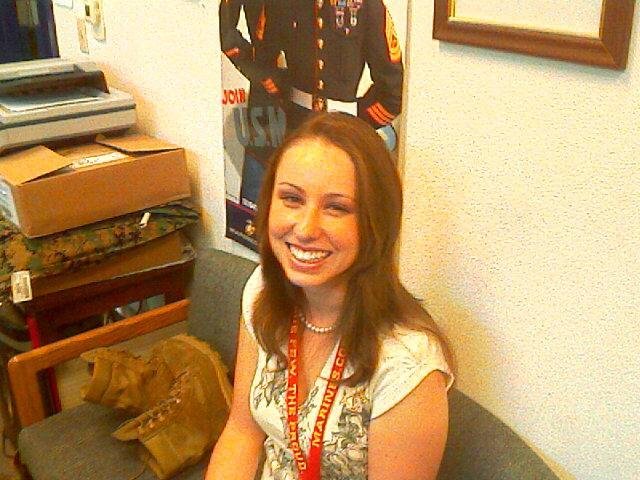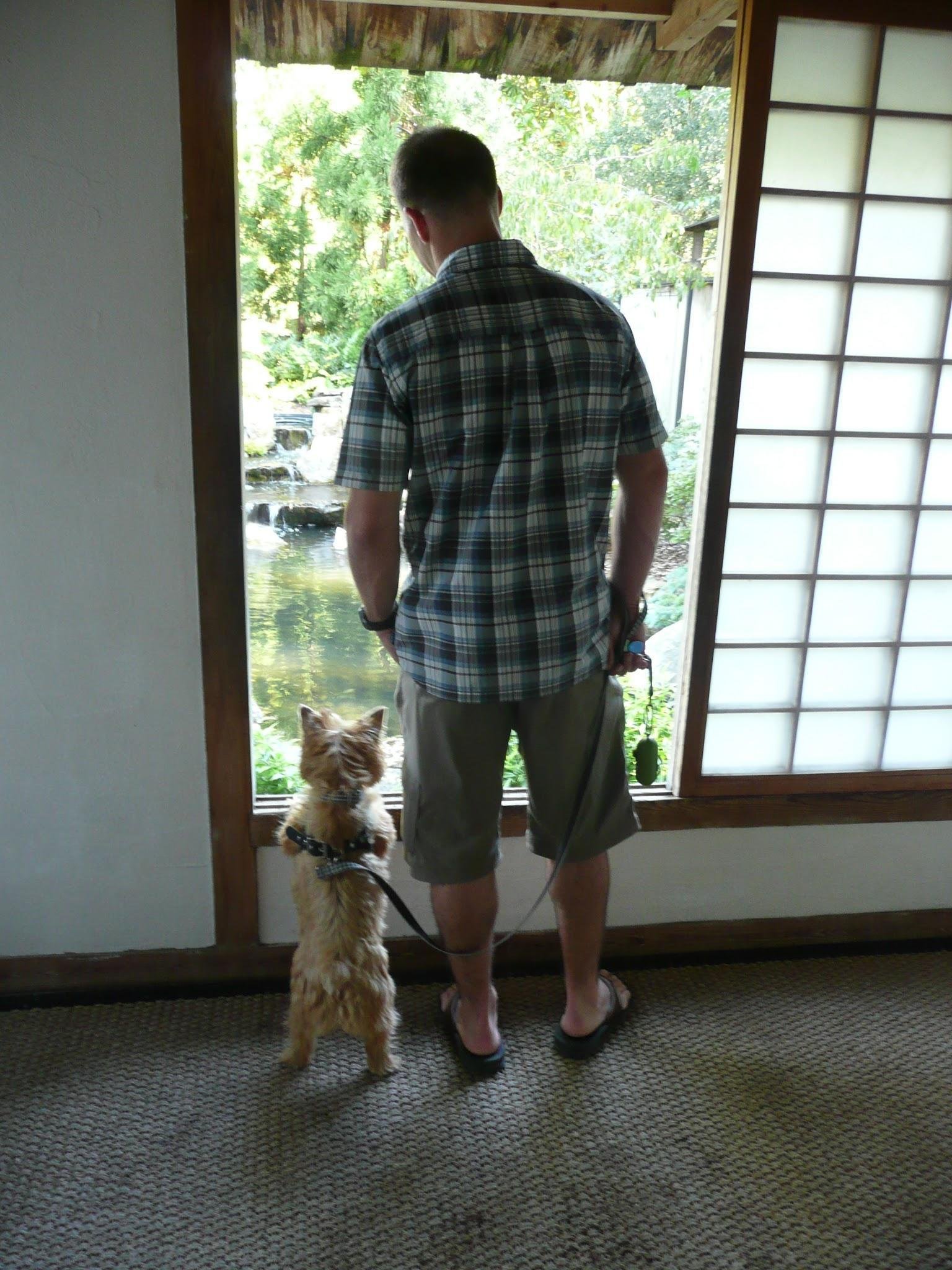An Interview with Lisa Stice
I’ve done over a year of Artist Interviews now, and I’m so pleased to share another inspiring MilspoFAN artist with you this month. I do feel a bit like a broken record, using the word “inspiring” in each month, but there’s truly no better word for it! Learning about these artists each month has become a nourishing habit for me. Who knew that there was so much artistry in the military spouse community? Lucky us!
Lisa Stice is a poet, Marine Corp Spouse, and mother. In this month’s MilspoFAN Artist Interview, Lisa tells us all about her work – how she became a poet, what her poetry means to her and her family, how she nurtures her creative work, and how she stays actively involved in poetry communities despite regular moves. In her poetry collection, Uniform (Aldrich Press 2016), Lisa unwraps her military spouse experience with a steadfast dedication to authenticity. Her poems are succinct and economical, which is to say that she packs a precise punch with each word. (Perhaps reflecting the frugality of military life?)
This interview reminds me how lucky we are to be living in an age where we can bring our networks and even our education along with us when we PCS. I’m also reminded of the vital importance of our work as artists- both in opening up dialogues with our work, as well as in taking good care of ourselves by prioritizing our creative work.
Now, I’m eager to share Lisa’s story, so let’s begin…
MilspoFAN: Tell us a little about yourself, your journey as a military spouse, and where you are today. (include things like where you have lived, who is in your family, where you grew up, how long you and your spouse have been “in”, or how you met your spouse)
I was born in Grand Junction, Colorado, but I moved around a bit as a kid. My dad works in road construction as a heavy equipment mechanic, so we moved to Indio, California when I was six, then Henderson, NV when I was ten to go where the work was. For my undergrad, I returned to Grand Junction to attend Mesa State College (now Colorado Mesa University), but made the move back to Henderson to teach at Basic High School for eight years. I’ve always felt like I’ve had two homes in Colorado and Nevada, and thought I’d end up permanently in one of them.
Then, the war began. My Key Club students and I organized school-wide care package drives for troops on deployment. During the several years I did those drives, I became close with our local Marine Corps League and especially with our school’s MCJROTC. The instructors (retired LTCol, MGySgt, and 1stSgt) of the MCJROTC program invited me to help chaperone their trips and drill competitions. The instructors got to know me so well, that they told me one day, “We want to set you up with a nice Marine, and we know the perfect one.” At first, I was a little hesitant because I thought, “I’m going to look absolutely desperate to whomever this guy is.” But, he emailed me, and we discovered we actually had some things in common and the conversation came so easy that we began talking over the phone. After months of just chatting and getting to know each other from a distance, this Marine—who would be my future husband—drove from San Diego where he was stationed at the time to Fontana where I would be chaperoning at a high school drill competition. Our first date was a high school drill competition and now we’ve been together for nine years, married for six, with a four-year-old daughter and a five-year-old Norwich terrier.
MilspoFAN: How did you become a poet? Can you describe for us your creative work and the aesthetic of your poetry?
Even as a kid, I thought like a poet. Seeing that big picture, but then focusing on just a small part of it. Like explaining what made a family trip so awesome overall by giving the details about a meal I ate or what it felt like to have spray from Niagara Falls on my skin. That way of thinking small to create an overall feeling just drew me to poetry.
My poems are usually quite short and often fragmented with broken syntax. Most of my inspiration comes from other people, so those interactions, my daughter’s idiosyncrasies, phrases and words borrowed from other writers, works of art and music, historical accounts, and other elements of the human record find their way into my poems. I like to have a lot of noise around me when I write. If no one is home, I’ll turn on the TV or the stereo. Ideas will come to me while I play with my daughter or dog, while I’m reading a bedtime story, chatting with my mom over the phone, things like that.
MilspoFAN: How has your role as a military spouse impacted your work as a writer- creatively, logistically, or otherwise?
Military life and its indirect impact on the civilians connected to it (wives, children, even pets) often inspires my work. Uniform was written during and shortly after my husband returned from deployment. I was in the middle of feeling the collateral effects of the whole experience, and so it came easy (albeit emotionally difficult) to write about the before, during, and after deployment from a spouse’s perspective. I’m glad I did. My husband and I communicate better after the gate was opened by my poetry.
Logistically, I can write poems anywhere. The inspiration for my writing comes more from human interaction than from environment. Logistics become an issue sometimes when it comes to promoting my writing with readings. Attending workshops is also quite difficult when you have a husband who goes out of town for trainings, works weekends and evenings at times, has an unpredictable schedule…and when you live thousands of miles away from family who would otherwise watch your child while you’re away. I make up for not being able to attend many workshops or conferences by choosing to attend the largest: the AWP Conference. I also love social media and email because I get to keep in touch with writers and artists I’ve met through school, publications, blogs, or AWP. When it came to schooling, logistics also came into play. I really have no idea how long a station will actually last or where the next one would be. A residency program was completely out of the question. I found a fantastic low-residency MFA that was perfect for me. The University of Alaska Anchorage moved with me because the fall, spring, and some summer work was completed through email and mail correspondence, then I got to connect with everyone in person for two weeks each summer. I began the program in Virginia, then it followed me to California, and I completed my MFA in North Carolina. Without a program like UAA’s, I likely wouldn’t have ever been able to pursue my degree. UAA was the writer community that gave me the courage to send my poems out into the world, and they continue to support give long after graduation.
MilspoFAN: How do you meet other artists or plug into the local arts scene when you PCS?
Currently, I haven’t plugged into the local arts scene. I’ve been at our current duty station for just over two years, and living in a community that places value on at least being from the region means I’m not local. Even though I’ve struggled to find an artist community to join or to do readings where I currently live, I have writer and artist friends scattered all over the country and even overseas. We share our writing in closed workshop settings in online writing groups, we read and talk about and promote each other’s work, I’ve participated in online readings and discussions via Skype, and I’ve done readings when I’ve traveled. When you PCS often, sometimes community is thousands of miles away.
MilspoFAN: What’s next for you?
I’m hoping that I’ll soon get to share a new collection. During and after our most recent PCS, I finished a collection of poems inspired by that move. My daughter was two, and the new environment coupled with all the changes of toddlerhood was quite the experience for her. Since her birth, she’s often my muse, but this collection is completely inspired by her. Another collection soon followed that is largely inspired by other poets who write/wrote in times of conflict. With both of those manuscripts submitted (the older has been in submission for a little over a year, and the more recent has been in submission for a few months), I’ve continued to write daily, so we’ll see what happens with all of those poems.
I also love being on the other side of writing through editing and mentoring. Working through email and mail correspondence, I mentor with the Veterans Writing Project, a non-profit organization that aids veterans and their family members at various stages of the writing process. I’m also an associate poetry editor for 1932 Quarterly, a journal of poetry and prose. I’d love to one day return to teaching (this time at the collegiate level), but that will have to wait until I settle down in one place or find an opening in a low-residency program that I can teach in no matter where I move.
MilspoFAN: What is the most practical piece of advice that you would give to other artists?
Send your work out into the world; share what you create with as many people as you can. Art connects people. It helps us communicate, empathize, celebrate.
Thank you, Lisa, for sharing your story with us! If you would like to learn more about Lisa’s poetry, find her on the web at:
https://lisastice.wordpress.com/
Facebook: https://www.facebook.com/LisaSticePoet/
Poets and Writers: https://www.pw.org/content/lisa_stice
Goodreads: https://www.goodreads.com/author/show/14955407.Lisa_Stice
Please join in the discussion here on the blog or over at our Facebook page.









